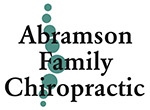Try Chiropractic Care for Tension-Type Headache First
Tension-type headache is a common form of headache characterized by a dull, aching pain and tightness or pressure around the forehead or back of the head and neck. A recent study that compared outcomes of 6,232 tension-type headache patients revealed that those initially treated with spinal manipulative therapy—the primary form of treatment provided by chiropractors—were half as likely to eventually be prescribed butalbital, a medication prescribed when first-line treatments fail. Health Science Reports, December 2024
Poor Metabolic Health and Drinking Are a Bad Combo for Liver Health
While heavy alcohol consumption is associated with an increased risk for liver disease, a new study found that if an individual also has poor metabolic health—central obesity, type 2 diabetes, hypertension, etc.—then their risk for liver scarring or damage more than doubles. Clinical Gastroenterology and Hepatology, February 2025
Zinc May Reduce Heart Disease Risk in Diabetics
Using data from the National Health and Nutrition Examination Survey, researchers report that a higher intake of dietary zinc—a mineral known for antioxidant, anti-inflammatory, and blood glucose regulating properties—is associated with a lower risk of cardiovascular disease-related death among type 2 diabetics. Thrombosis Journal, March 2025
2,000 Steps a Day May Be Key for Stroke Rehab
New research suggests that incorporating walking at increased distances toward a goal of 2,000 steps a day can significantly improve outcomes for patients recovering from stroke, particularly with respect to mobility, gait speed, balance, and quality of life. American Stroke Association, February 2025
Depression Can Hasten Chronic Illness Onset
An analysis of data concerning more than 172,500 adults revealed that those with a history of depression developed chronic conditions like heart disease and type 2 diabetes up to 30% earlier than their peers without a history of mood disorders. PLOS Medicine, February 2025
Frailty Is Not Inevitable
Frailty is a condition characterized by weakness, slowed movement, physical inactivity, self-reported exhaustion, and unintentional weight loss, all of which are associated with increased health risks. While gradual declines in physical and mental function are part of the aging process, frailty is not. To reduce the risk of becoming frail, older adults are encouraged to get regular exercise, reduce sedentary time, eat a healthy diet, stay socially engaged, and manage chronic health problems as instructed by their healthcare provider. The Conversation, February 2025
“Logic will get you from A to B. Imagination will take you everywhere.” ~ Albert Einstein
This information should not be substituted for medical or chiropractic advice. Any and all health care concerns, decisions, and actions must be done through the advice and counsel of a health care professional who is familiar with your updated medical history.
